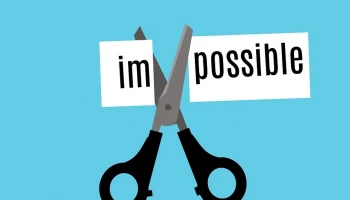6 challenges facing modern metropolises

Contemporary metropolitan areas are increasingly relying on the principles that suit the best enterprises. Their activity is data-driven and focused on building a cooperation network that is to scale the benefits of individual members of the Metropolis. What are the challenges facing Metropolises today? In this article, we tried to present the most important of them.
1. Environmental protection:
The current agenda of the European Union is focused on environmental issues. There is an increasing emphasis on the pursuit of low carbon emissions. The areas in which one can expect particularly dynamic development in the coming years are renewable energy sources and the implementation of the principles of the circular economy. The European Green Deal predicts achievement of climate neutrality in 2050. The implementation of such an ambitious goal will certainly require enormous investment outlays. The most difficult challenge will be to move away from coal as the main source of energy. Launching alternative energy sources involves the implementation of many projects in both the public and private sectors. Additionally, air pollution is a specific challenge for the Krakow Metropolis related to environmental protection and energy transformation. The main source of air pollution is what is known as "low emissions". These are combustion processes outside industry, taking place mainly in home stoves and boiler rooms. Coal furnaces produce the greatest amount of suspended dust. Thus, the goal for local authorities should be to reduce the number of active coal stoves throughout the metropolitan area. It is necessary to expand activities such as the anti-smog resolution, which from September 1, 2019 prohibits the burning of coal and wood in the area of the Krakow City Commune. In turn, the implementation of the assumptions of the circular economy (circular economy) will require the development of advanced technological and organizational solutions at all stages of the product life cycle. Circular economy is an economy in which raw materials, materials and products remain in constant circulation for as long as possible. Thanks to this approach, the generation of waste is minimized. In order for the product to become a raw material at the end of its economic useful life, it must be designed from the beginning in the spirit of circular economy. Worth noticing, that the creation of new products and production processes in accordance with the assumptions of the circular economy is an opportunity to stimulate innovation and thus increase the competitiveness of the entire economy. All changes related to environmental protection should be seen as an opportunity to solve the problems resulting from pollution and environmental degradation. At the same time, the need to redesign a number of products to enable them to be recycled opens up new opportunities to unlock the innovative potential of the Krakow Metropolis. It is also worth emphasizing the challenge of finding a balance in terms of introducing changes, so that they do not burden the economy too much. High requirements in terms of the energy sources used,
2. Spatial planning:
Although the process itself is formalized, and the current land cover with development plans is very high, spatial planning is a demanding aspect of metropolitan area management. The genesis of the problems affecting Polish metropolises is the legislative change of 2003, which invalidated all early spatial development plans. The kind of new beginning that came after 2003 created great opportunities for interpreting regulations in favor of investors. The result of such a policy is a space which is not the realization of a well-thought-out vision of urban planners, but simply a consequence of meeting the needs and possibilities of the owners of particular areas. The first challenge that can be indicated is the elimination of the negative effects associated with the emergence of new office and residential investments without leaving room for the infrastructure necessary for residents (for example, appropriate width of roads, green areas, schools). The second challenge is suburbanization. People migrating from rural to urbanized areas look for their living space in city districts more and more distant from the center. Additionally, the aging society and the spread of remote work contribute to the decline in the importance of city centers. Looking through the prism of metropolitan management, the above trends are unfavorable. Suburbanization also exacerbates the challenges of infrastructure, spatial planning and the delivery of public services.
3. Public services and infrastructure:
Along with the changing reality, Polish metropolises face the challenge of creating favorable conditions for both the development of entrepreneurship and the quality of life of the inhabitants. The expectations of the representatives of both groups are very high, and the competition between individual metropolitan areas for the best investments and for human capital is very intense. In order to successfully achieve their goals, metropolitan area managers must ensure the appropriate quality of infrastructure (including transport, energy, telecommunications), and provide public services at a satisfactory level for residents (education, security, health care, urban transport, waste management, water). The progressing suburbanization and energy transformation cause
4. Demography:
In the case of the Krakow Metropolis, we are currently dealing with a positive migration balance, as well as with a natural increase. Nevertheless, special attention should be paid to the changes in the demographic structure taking place in Poland and in Europe. The share of the youngest age groups in society is decreasing. At the same time, the share of the oldest years is growing. According to the forecasts of the Central Statistical Office, in 2050 the share of people of working age in the population in Poland will be only 57%, with the share of the 65+ age group at approximately 32%. The increase in the demographic burden will cause many complex problems. First of all, human resources may prove insufficient to meet the needs of the economy. Secondly, the Polish pension system will be increasingly burdened. Due to the prevailing trends, already in many countries, both at the national and local levels, an important goal is to increase the professional activity of older people. In addition to increasing the activity of older people, the priority action for the authorities of the Metropolis area should be to attract new residents who will be able to meet the future demand of the economy for human resources.
5. Management:
The most multidimensional and interdisciplinary area distinguished in the analysis of the challenges facing metropolises is management. The key challenge is the intensification of cooperation between entities, understood as cooperation of interest groups within the metropolitan area (especially between various interest groups, local governments and scientists) and the development of a network of partnerships with external entities. Establishing a dialogue between various entities is also necessary from the point of view of reconciling the often conflicting interests of individual groups. Good cooperation is also extremely important in the context of activities aimed at leveling economic differences within a given metropolis. Next, challenges in the area of management result from previously identified threats. Due to the declining economic activity as a result of the COVID-19 pandemic, the challenges related to a possible recession and the deteriorating state of public finances are becoming more topical. Managing a metropolis in difficult economic conditions can be a big test for the effectiveness of local administration. It is a huge challenge to carry out effective lobbying at the level of the central government in order to introduce entrepreneurial-friendly changes throughout the country. A great challenge for the administration at the local level is also choosing and implementing a long-term, coherent vision of development without succumbing to short-term political benefits. Managing a metropolis in difficult economic conditions can be a big test for the effectiveness of local administration. It is a huge challenge to carry out effective lobbying at the level of the central government in order to introduce entrepreneurial-friendly changes throughout the country. A great challenge for the administration at the local level is also choosing and implementing a long-term, coherent vision of development without succumbing to short-term political benefits. Managing a metropolis in difficult economic conditions can be a big test for the effectiveness of local administration. It is a huge challenge to carry out effective lobbying at the level of the central government in order to introduce entrepreneurship-friendly changes throughout the country. A great challenge for the administration at the local level is also choosing and implementing a long-term, coherent vision of development without succumbing to short-term political benefits.
6. Technological progress:
The future of any organization depends on the ability to quickly adapt to changes in the environment. The changes that come along with technological progress, on the one hand, are an opportunity, but on the other hand, the use of tools and solutions offered by technology is a huge challenge for the managers of the metropolitan area. The COVID-19 pandemic has shown how important it is to adapt public administration to current standards. The use of new methods of communication and digitization of services are the requirements of modernity. The architecture of systems used by public administration bodies is very extensive. At the same time, there is no efficient circulation of documents between offices, and documents have to be repeatedly entered into IT systems. In order to continue the digital transformation of the Polish administration, it is necessary to implement improvements in this area. Currently, the assumptions of the idea of "smart city" are also gaining popularity. The foundation of smart city is data that can be helpful in managing a metropolis with the use of IT systems. You need broad access to information from many industries, which allows you to carry out multidimensional analyzes. Through mobile applications based on city data, it is possible to involve residents in solving problems related to the management of the metropolitan area. Therefore, a comprehensive and long-term strategy for implementing available solutions is needed. As well as coordinating the work of various administrative units in order to optimize the use of resources and opportunities. At the enterprise level, technological advances make it possible to improve operational activities, reduce the share of human resources and generate savings, but at the same time it makes some professions disappear. The maladjustment of the qualifications of economically active people to the requirements of the labor market is a challenge for the administrative area. It is necessary to constantly update the educational offer to develop the skills sought on the labor market. Along with technological progress and the development of the knowledge-based economy, the risk of increased mobility of enterprises also grows. Some entities can easily move their offices internationally in search of better business conditions. Therefore, one can expect increased pressure from competing economic centers,


 rozmiar tekstu
rozmiar tekstu kontrast
kontrast Polityka prywatności
Polityka prywatności Zasady dostępności
Zasady dostępności




.png)